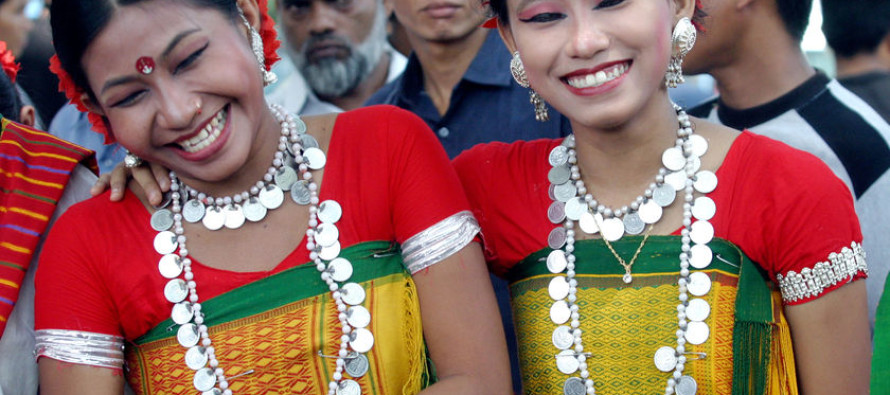Ethnic clothing can boost mental health: study

By Corinne Podger from Radio Australia
A new study says allowing school children to wear clothes that reflect their ethnic identity can be good for their mental health.
One-thousand white British and Bangladeshi teenagers were asked about their culture, social life and health, and then given a mental health check-up two years later.
The research, from Queen Mary University of London, found Bangladeshi girls who wore traditional dress rather than Western clothing had fewer behavioural and emotional problems.
The study appears in the Journal of Epidemiology and Community Health, and co-author Professor Kam Bhui told Radio Australia’s Connect Asia program that the findings suggest that pressuring ethnic minority groups to integrate fully into a host society could be dangerous.
"Traditional clothing amongst Bangladeshi adolescents was associated with a lower risk of mental health problems at follow-up two years later, and by lower risk, I mean they faced about one-tenth of the risk," he said.
Professor Bhui says the findings applied especially to girls, but were also true for boys – and that the study found an equally strong relationship between clothing choice and mental health for white participants.
"You would think that cultural identity was only relevant to migrants and immigrants, and not the host population, but this is a particular part of Britain where ethnic groups are present in a higher density, and we think that’s why we found effects among the white British group," he said.
"They are actually the minority in this area, so for them, ‘integrated clothing choices’ – where they had a choice of their own clothing and the clothing of other cultural groups – was associated with a lower risk of mental health problems."
He says that overall, the study found that children of any ethnicity – white or otherwise – who did not wear clothing that reflected their own identity – were up to five times more likely to suffer mental health illness later on.
‘Protective environment’
Professor Bhui says there may be other reasons why traditional clothing keeps young Bangladeshi Britons happier, beyond simply being able to choose what to wear.
"Traditional clothing may just reflect a protective environment, less chance of them being involved in risky behaviours or relationships," he said.
"Clothing styles may also reflect a traditional upbringing and religion, and religious coping mechanisms may be a part of their way of avoiding mental problems."
He added that governments could respond to the study by doing more to assist people who move from different cultures into Western society, given their potential greater vulnerability to mental health problems.
He also criticised countries such as France, where a government ban on Muslim clothing such as headscarves has outraged ethnic minorities.
"It’s extremely challenging, because by asking young people to conform, one might be stripping them of an aspect of their identity which they find helpful," he said.
"That might be stressful for them, and we need to help young people, and adults as well who are recent migrants, to adapt and move into an integrated identity, so they can adopt practices of their new society without feeling a loss of their own cherished beliefs, values and traditional practices."
original source | Link posted by Shahriyar Wahab


